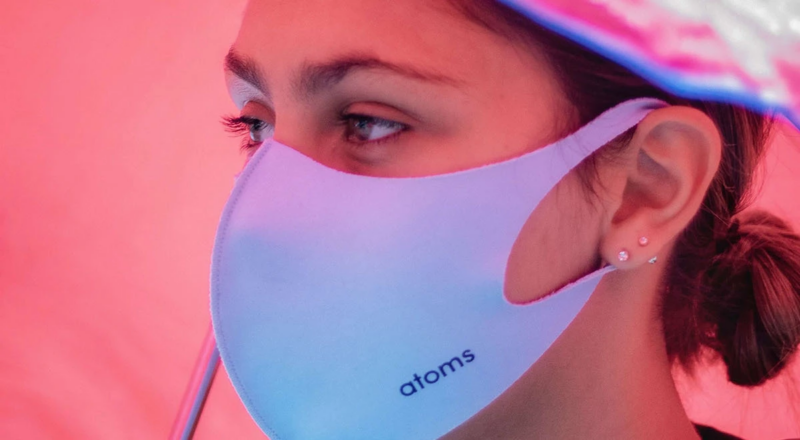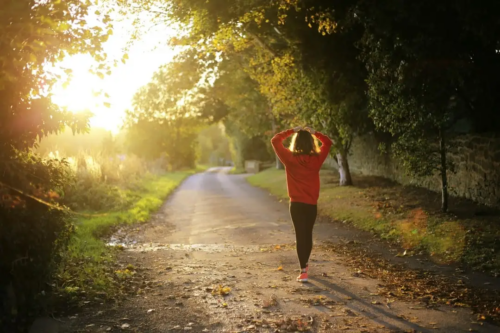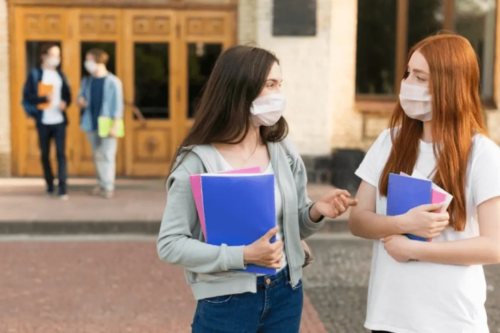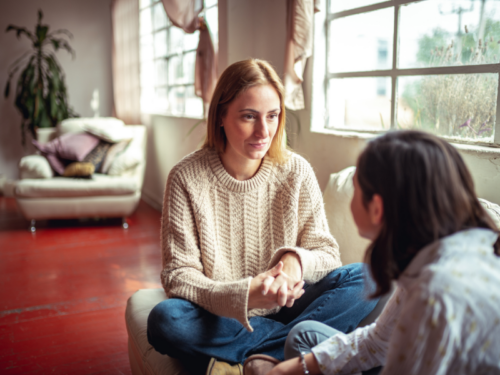
How to Help Teens Process COVID Grief?
Written By: Charlie Health Editorial Team
October 11, 2021
6 min.
One in four COVID deaths has left a young person without a parent or primary caregiver. That’s according to a new study published in the journal, Pediatrics. Surviving parents and other caregivers are often overwhelmed when trying to navigate how to help the young people in their lives process grief. Here are some ways to help facilitate the journey toward healing.
Learn more about our Clinical Review Process
One in four COVID deaths has left a young person without a parent or primary caregiver. That’s according to a new study published in the journal, Pediatrics. In the study’s key findings, researchers report that:
- From April 1, 2020 through June 30, 2021, over 140,000 children in the US experienced the death of a parent or grandparent caregiver. (These numbers do not account for the recent Delta variant wave of the pandemic.)
- The risk of such loss was 1.1 to 4.5 times higher among children of racial and ethnic minorities, compared to Non-Hispanic white children.
- The highest burden of COVID-19-associated death of parents and caregivers occurred in Southern border states for Hispanic children, Southeastern states for Black children, and in states with tribal areas for American Indian/Alaska Native populations.
These are harrowing statistics, especially in the face of the collective trauma that has accumulated on a global scale due to the ongoing fear, lack of control, sickness, death, and loss of normalcy as a result of the pandemic. For children and teens in particular, the social isolation of the pandemic has only exacerbated mental health issues, including the serious trauma of losing a parent or caregiver. According to
Authors of the study concluded that children losing caregivers to COVID-19 need care and safe, stable, and nurturing families with economic support, quality childcare and evidence-based parenting support programs. According to the National Child Traumatic Stress Network, young people and their families are more susceptible to the effects of traumatic stress and grief. In a briefing on the compounded trauma of COVID, NCTSN writes:
“Transition-age youth who have experienced trauma face multiple challenges. These may include living arrangements that feel unsafe; a lack of privacy to participate in telehealth visits; housing and food insecurity; difficulty accessing unemployment, food stamps, and other benefits due to the complexity of application processes; lack of technology access and supports to continue higher education following the transition to remote learning; and loss of contact with social supports, including former teachers, mentors, and mental health providers.”
Young people and their families who are dealing with COVID-related trauma and loss face unique challenges on top of the already difficult process of grieving. For many families throughout the pandemic, the ability to gather and grieve collectively at a funeral, wake, or shiva has been impossible due to social distancing measures. Families may have been unable to spend time with their loved one in person before they died, which can create a lack of final closure. Some people report feeling survivor’s guilt when they lose someone to the virus––”Why didn’t I get sick too?” Prolonged grief is spiking among people who have experienced the death of a loved one over the past year and a half.
On top of these hurdles toward healing, preexisting mental health conditions are typically exacerbated by death and grieving. Depression, anxiety, PTSD, and substance abuse disorders can all be intensely triggered by the loss of a loved one. This is especially true for teens and young adults, who often need help in processing and expressing their emotions during times of intense transition. So what can parents, families, and other support networks do to help ease the grieving process for the young people in their lives?
“The most important things to do are pay attention and communicate,” said Dr. Caroline Fenkel, Charlie Health’s Chief Clinical Officer. “Grief can make symptoms of mental health issues worse, such as insomnia, sadness, fear, changes in appetite…you name it. But grief is a normal and healthy process that––when handled with care––can turn out to be an immensely healing and cathartic experience.”
Do you need more support with
your mental health?
Charlie Health can help.
Here are some suggestions and strategies on how to navigate grief for yourself and others, create a safe space for the healing process, and work together as a family or community to support one another:
- Try to find alternative ways to celebrate the life of the person lost if a traditional funeral wasn’t possible, such as an intentional space and time to share stories about the person or a shared family/community meal.
- Keep as many family routines in place as possible.
- Be cognizant of “what-ifs,” blaming yourself or others, and/or survivor’s guilt. While these are all normal responses, they can delay healing.
- Remember that while the stages of grief are well-established, the idea that grieving follows a linear path is not true for everyone. There might be days––or even singular moments––of intense sadness followed by a brief episode of acceptance, then a new wave of anger. This is normal, and it’s okay to trust your process and validate your emotions as they arise.
- Be gentle on yourself. Be gentle on your kids and teens. This is a time to lean in to one another and to keep communication open and gentle. Respecting other people’s boundaries and their personal grieving process is vital to ensure their sense of safety during this tumultuous time.
- Encourage kids, teens, and young adults to return to “normal” life whenever they feel ready. Remind them that they don’t have to feel guilty if they feel happy or have fun in the midst of grieving or shortly after losing someone. Humans are complex and emotions are always changing.
- If feelings of intense fear around the virus itself arise: try to remember that the majority of people are taking the appropriate steps to mitigate the spread of the COVID by wearing masks, getting vaccinated, practicing social distancing, and taking other sanitation measures. A fear of the virus wholesale is to be expected, but remember that (according to most experts) we are out of the worst of it.
- Remember that you’re not alone and that everyone experiences death at some point in their life. So don’t be afraid to ask how others have coped with grief. It’s also advised that if preexisting mental health conditions intensify or if the acute symptoms of grief last for more than a few months, you may want to consider seeking clinical therapy to help you on the path toward healing and recovery. Charlie Health is a virtual resource for young people and families everywhere struggling with trauma and other acute mental health issues.
Support through challenging times at Charlie Health
If you or a loved one does think it’s time for a higher level of care, virtual IOP is a highly effective way to address trauma and grief. The ability to connect with people who are going through the same processes, experiencing the same emotions, or who have faced similar losses is inherently healing. It helps people feel seen, heard, and held. Group sessions at Charlie Health also help teach young people and their families how to communicate emotions, regulate them, and make conscious decisions about how to make healthy decisions in response to them. This DBT-skills style of group sessions, among other group session modalities, is at the core of what we do at Charlie Health.
We’re here to support you and your family through these challenging times. Our goal is to help as many people as possible reach their healing milestones, achieve sustainable recovery, and to live the best versions of their lives within the best versions of themselves. Contact us today if you’re struggling and want to learn more about our virtual mental health treatment plans.
References
https://kidshealth.org/en/parents/death.html
https://nyulangone.org/news/helping-children-process-grief-loss-during-covid-19
https://www.npr.org/sections/health-shots/2021/10/07/1043881136/covid-deaths-leave-thousands-of-u-s-kids-grieving-parents-or-primarycaregivers#:~:text=From%20The%20Top-,COVID%20deaths%20leave%20thousands%20of%20U.S.%20kids%20grieving%20parents%20or,racial%20and%20ethnic%20minority%20groups.
https://www.ncbi.nlm.nih.gov/pmc/articles/PMC7940762/





